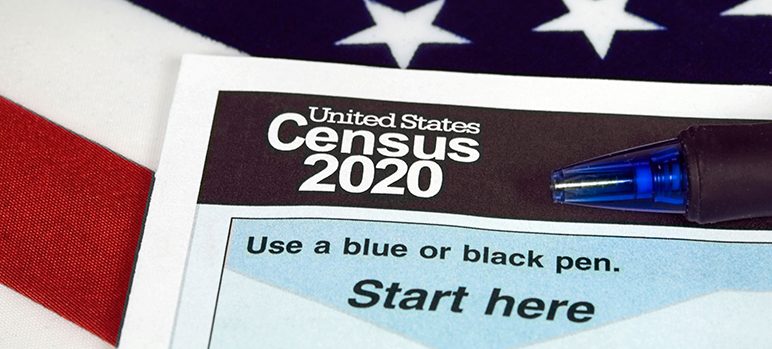After budgeting an additional $1 million earlier this year to ensure a complete and accurate 2020 census, Santa Clara County has already been hard at work gearing up for the decennial count. Come Tuesday, the Board of Supervisors will hear a progress report on the effort, which stemmed in part from concerns that the Trump administration’s decision to include a citizenship question for the first time in 70 years would prevent immigrant communities from participating.
Another reason for spending a high-than-usual share of local resources on a federal project is because of the high stakes involved. The federal government uses census-derived data to determine how to allocate about $500 million a year to the county for services such as disease control, foster care, child health care and law enforcement. Undercounting any part of the population would mean less money in the ensuing decade—but also less political representation.
Late last year, projections showed that California could very well lose a congressional seat in 2020, which would be a first in the state’s 160-year history. The state Legislative Analyst’s Office cautioned in March this year that the loss is a very real possibility, one that could result from a greater-than-average undercount of about 76,000.
Thankfully, Deputy County Executive David Campos said, his team has already upped the number of addresses in this jurisdiction by 11 percent, or 77,306 previously unlisted by the U.S. Census Bureau. That list of—known as the Local Update of Census Addresses, or LUCA for short—serves as the foundation for the official census count.
“That was basically a dress rehearsal,” Campos said in an interview last week. “No other jurisdiction has done as much around the LUCA as we have, and we’re going to keep that momentum going.”
California is considered the hardest-to-county state in the union, Campos said. In 2010, every racial demographic except whites were undercounted in California, as were other groups such as renters and young children.
To make sure that doesn’t happen again in 2020, at least in the South Bay, Campos said the county is working with community-based nonprofits to make sure that even the hardest-to-reach people have access to the internet to take the online census. The county will also work with social workers and outreach organizations to build enough trust with local immigrant families to overcome any anxieties they might have about responding to a survey that asks for their citizenship status.
“There are a lot of people who are very afraid of the federal government, and key among those folks are the ones who are undocumented,” Campos said. “So we will have to make sure that the county continues to support people regardless of immigration status, so people understand that they can trust us.”
If needed, the county will join other jurisdictions in a lawsuit to challenge the citizenship question on the 2020 count, Campos said. “There’s still a lot of uncertainty,” he said. “But we’re trying to be transparent about what we do know and what we don’t yet know.”
Doing it right will require a concerted effort from the county, its service providers and residents. “Everyone has a stake in their neighbor being counted,” Campos said. “If they’re not, that’s money the county won’t get and political representation we all lose.”
More from the Santa Clara County Board of Supervisors agenda for August 28, 2018:
- Supervisors will review the policies for a range of surveillance technologies used by the Sheriff’s Office, including license plate readers, tracking devices, fingerprint scanners and crisis negotiations call boxes. The county adopted an ordinance in 2016 that requires all departments to have a policy in place for each surveillance tool.
- After the “Slavery Towers” debacle, in which federal investigators busted a contractor for wage theft and human trafficking at a downtown San Jose development called Silvery Towers, the county is considering whether to impose stricter penalties to prevent similar abuses.
- The county will consider enacting a permanent ban on commercial cannabis grows.
- Supervisors will vote on which of four bidders to hire to demolish San Jose’s old City Hall Annex at 801 N. First. St. Only two came in under the engineering estimate of $2.1 million: Clauss Construction ($1.4 million) and Silverado Contractors ($1.8 million). (UPDATE: This item has been tabled to Sept. 11)
- Supervisor Cindy Chavez proposed creating a county arts and culture program potentially funded through hotel tax revenue.
WHAT: Board of Supervisors meets
WHEN: 9:30am Tuesday
WHERE: County Government Center, 70 W. Hedding St., San Jose
INFO: Clerk of the Board, 408.299.5001


> Santa Clara County Finds 77,300 Previously Unlisted Addresses to Survey for 2020 Census
If an illegal alien living at one of these “77,300 Previously Unlisted Addresses” lies to the census taker and says they are U.S. citizens, do they get to vote in U.S. elections?
Did they find these address in graveyards ,cemeteries, under bridges, and along the freeways,
or is the bookkeeping in this county so bad they forgot to collect property taxes from those addresses.
I smell voter fraud in this story.